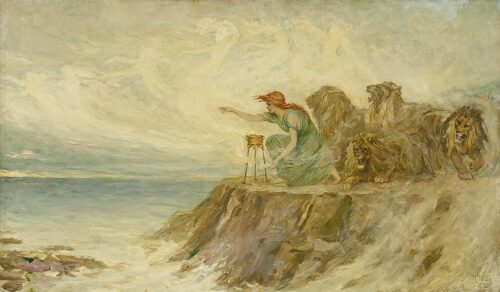Poetry is an important aspect of Traditional Japanese Reiki. The Usui Reiki Ryôhô Gakkai included 125 poems, called waka, in the hikkei, or handbook, given to members. Meditations on gyosei, the poetry written by the Meiji Emperor, reflect the nationalism of the time that the system of Reiki was developed. But beyond the patriotism of honoring the Emperor, contemplation of poetry provides an experience of the oneness that is the basis of the spirituality of Reiki.
Waka means Japanese (wa) poem (ka). These poems follow a specific syllabic structure of five lines consisting of 5 – 7 – 5 – 7 – 7 syllables (translations may or may not try to follow the syllabic structure). Traditionally the poems often dealt with nature, such as the beauty of flowers, the sounds of birds or the change of the seasons. When we remember that Shintoism, the national religion of Japan, honors the spirits or kami that inhabit all things, it is easy to recognize the inherent spirituality of these poems.
In many of the waka, a parallel is drawn between the human narrator of the poem and the natural phenomenon that is its subject. This creates a sense of unity between ourselves and the divine as expressed through nature.
One of my favorite poems is:
1.
As a great sky in clear light green
I wish my heart would be as vast.
I started off my Reiki class with this poem on Thursday and one of the participants immediately let out a huge sigh of relaxation. Simply recite the poem, slowly, being aware of the flow of energy on the voice, and allowing your imagination to suggest the feeling of your kokoro, your heart/mind/spirit, expanding until it is as broad and open as the sky. Many people will be aware of an immediate shift, a lightening and expansion of their energy as they see themselves becoming like this aspect of divine nature.
Being able to see ourselves in relation to the universe, to feel ourselves converge with the natural world, to dissolve the barriers that keep us separate from all that is, is one of the powerful outcomes that arises from the contemplation of waka. The experience can also be very healing: to heal means to become whole, and not only must we become whole within our own body and mind, we return to wholeness with all that is. By finding this place of divine unity, the disease of our fractured selves experiences the perfection of unity and we heal as the spiritual blueprint of our body comes into alignment with divine perfection.
Many waka address the change of seasons. They might try to capture the exact moment that identifies the transition from one season to the next:
2.
When autumn came
My eyes clearly
Could not see it, yet
In the sound of the wind
I felt it.
or they might comment on how the season has shifted unobserved.
3.
Deep within the mountains
That Spring has come remains unknown;
On my pinewood door,
Slowly strike
Droplets of snowmelt.
For me, these poems address the transitions that we each experience in life. All of life moves in cycles, and to recognize the natural progressions and changes, the innate ebb and flow of our existence, helps us to release expectation and find our own stillness and stability as the fickle world changes around us. Rather than being caught up in the trends of the material world, hoping to ride a wave that will never break or getting caught in the mourning of the loss felt during a period of ebbing personal resources—whatever those resources might be—these poems remind us that larger cycles provide stability during the shifting cycles of life.

4.
The moon of the autumn night still remains as same as long time ago but so many people passed away from this world.
When these poems address the idea of identifying the moment of change:
5.
The scattered petals
Carried on the waters
Answer but one question:
In the mountains, spring
Has passed completely
they encourage us to, like the narrator of the poem, step into the objectivity of the observing mind, to look at our lives and see the moments of transition. By shifting to this perspective, we arise from the ephemerality of existence and connect with our higher self which reflects the divine and accepts stillness. This objectivity allows us to move easily through life transitions.
If you would like to know more about meditation with waka or the gyosei from the Usui Reiki Ryôhô Hikkei, please check out my class on Reiki Meditations.
- Poem by Meiji Emperor, translated by Hyakuten Inamoto, from the International House of Reiki website.
- Poem by Fujiwara no Toshiyuki, from the Japan 2001 Waka Website
- Poem by Princess Shokushi, from the Japan 2001 Waka Website
- Poem by Meiji Emperor, translated by Amy Dean, from The Reiki Threshold translation of the hikkei.
- Poem by Fukayabu, from the Japan 2001 Waka Website.
_________________________________________________
Joy Vernon is a Reiki Practitioner and Teacher in Denver, Colorado. She is trained in two styles of Traditional Japanese Reiki: Usui Reiki Ryôhô and Komyo Reiki, as well as the Western-influenced Usui Tibetan tradition of Reiki. Joy is also a Certified Professional Tarot Reader. For information on upcoming classes or to schedule an appointment, please visit JoyVernon.com.
© 2013 by Joy Vernon. All rights reserved.







